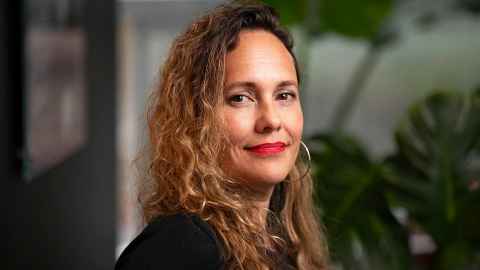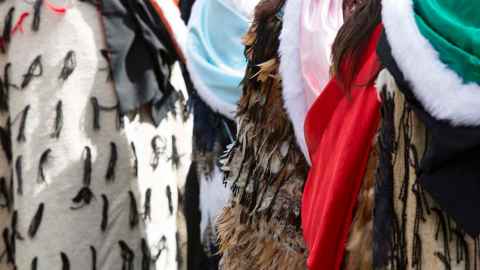Te reo Māori as a vehicle for decolonising the nation
14 September 2023
This Māori Language Week, I want to challenge people to think about their own bicultural vision for Aotearoa New Zealand, says Dr Kiri Dell.

Opinion: As we progress our te reo Māori aspirations for the country, we are also opening up big conversations around how we can decolonise our nation.
In my Marsden-funded research, which looks to understand Aotearoa New Zealand’s journey to become a bilingual nation, I have found that multiple positions are being thrown up, debated and contested in terms of how te reo Māori should be distributed, consumed and resourced. These varied positions provide a crucial opportunity to explore the dynamics and the nature of the bicultural relationship between Māori and Pākehā and to further explore decolonisation and how it can be best achieved.
One language revitalisation position is the normalising of te reo Māori, which advocates for all New Zealanders to have equal access to learning. The logic being that through exposure and uptake, the language becomes more widely accepted, has higher rates of usage and stands a much greater chance of being revitalised and passed on intergenerationally.
Another language revitalisation position advocates for more targeted strategies and a specific focus on Māori. This position advocates for resources to be targeted towards getting more Māori over the line in terms of gaining fluency. The logic being that Māori should be the nation’s first priority and that such efforts will strengthen the maintenance of the language at its core, and better enable it to be passed on intergenerationally.
The third part in this, and probably the most contentious, is the question of how Pākehā should be involved in language revitalisation. As consumers of te reo Māori are they proponents of the language or taking up space? Are they increasing visibility or extracting language resources?
This Māori Language Week, I want to challenge people to think about their own bicultural vision for Aotearoa New Zealand. For many Māori and Pākehā this might symbolise a coming together - a uniting collaboration that sees us support each other.
But for others, and particularly for some Māori, this might actually represent having space apart and a sense of autonomy. This view seeks to strengthen the Māori base. On the face of it, the positions appear completely opposed. But both need to occur.

Meanwhile, when it comes to decolonisation and the bigger picture in terms of how we can all work together, some of the phrases that are bandied about like ‘one law for all’, and ‘we are all one people’ brush over really understanding our nation’s entanglement. These ideas are spouted to try and portray Māori as driving national separatism. Yes, some Māori do seek to gain some autonomy to reshape the lives they want for their whānau. There is a desire by some Māori to live as Māori, embraced and nourished by Māori ways of living, without political agitation, and without the social and cultural deprivations caused by colonisation. This view sees Māori independence as a pathway to national unity and harmony (not separatism).
Thinking of Māori and Pākehā as separate entities is a bit simplistic. We are all part of an entangled space and a murky middle area. Yes we have Māori. We also have Pākehā. We also have those that are Māori and Pākehā. Then we have Pākehā who are raised by Māori, or live with Māori. And then we have Māori, who have been disconnected from Māori. We have to navigate all these entangled bits too.
Aotearoa New Zealand is at a point in our history that is somewhat unique, and as we progress our te reo Māori aspirations for the country, we are also opening up big questions around how we can decolonise our nation. We are running into new situations we have not experienced before. We are uncovering different relationship dynamics between Māori and Pākehā. Te reo Māori can be a vehicle to facilitate decolonising this country.
To assist with activating and opening discussions I leave you with some decolonising ponderings emerging in our Marsden research:
Philosophical: What is the essence of te reo Māori?
Can te reo Māori only exist in connection with whenua and tangata Māori?
Can te reo Māori be transplanted and lifted out of Aotearoa to anywhere in the world and be maintained outside of Māori people?
Is te reo Māori a universal language?
Power: Who should have te reo?
Does widespread usage of te reo dilute Māori ability to control and maintain the language?
Is New Zealand only willing to resource te reo revitalisation if Pākehā can have it too?
Can Māori have te reo regardless of whether Pākehā do?
When other Māori people say “Māori are too useless and lazy to become fluent”, then aren’t they just confirming that the coloniser was right all along?
Considering many Māori have crawled through the fires for their own language reclamation journey, what are the symbolic implications for promoting and awarding Pākehā for learning to speak te reo?
Resourcing: How should te reo be resourced?
Are Pākehā taking up too much te reo resources/spaces?
Are Māori language teachers and experts being exhausted and consumed in mainstreaming language spaces now at the expense of Māori language learners?
There is a lot more financial gain attached to speaking te reo. Is te reo Māori becoming commodified? Is this even bad?
Quality: What is authentic te reo Māori?
Does a Māori-first policy of language acquisition lead to dangerously low levels for intergenerational transmission?
Does normalising te reo mean a standardised version of the language is needed?
Does standardising te reo sacrifice richness and nuance of dialect and compromise hapu/iwitanga?
If a Pākehā is fluent, can they authentically teach other Pākehā people te reo? Can they authentically teach Māori people too?
Dr Kiri Dell is a senior lecturer in management and international business at Waipapa Taumata Rau University of Auckland Business School and director of the Postgraduate Diploma in Māori Business Development.
This article reflects the opinion of the author and not necessarily the views of Waipapa Taumata Rau University of Auckland.
It was first published on New Zealand Herald
Media contact:
Sophie Boladeras, media adviser
M: 022 4600 388
E: sophie.boladeras@auckland.ac.nz